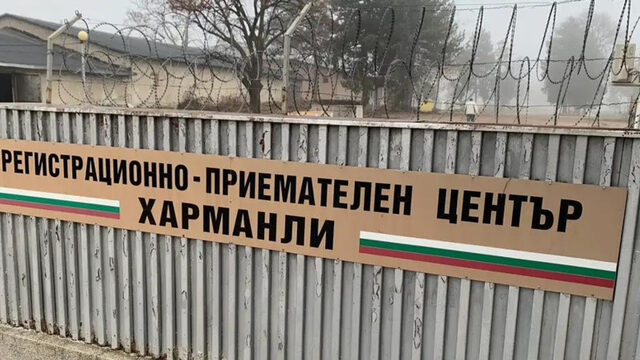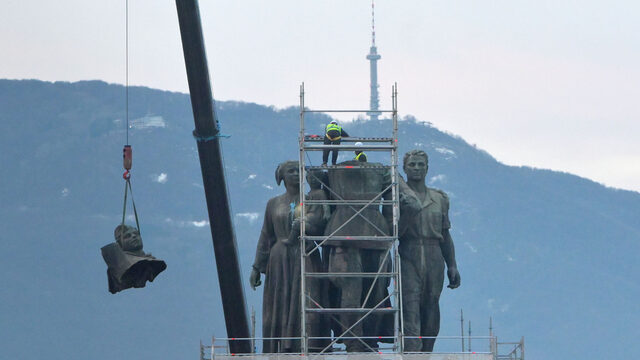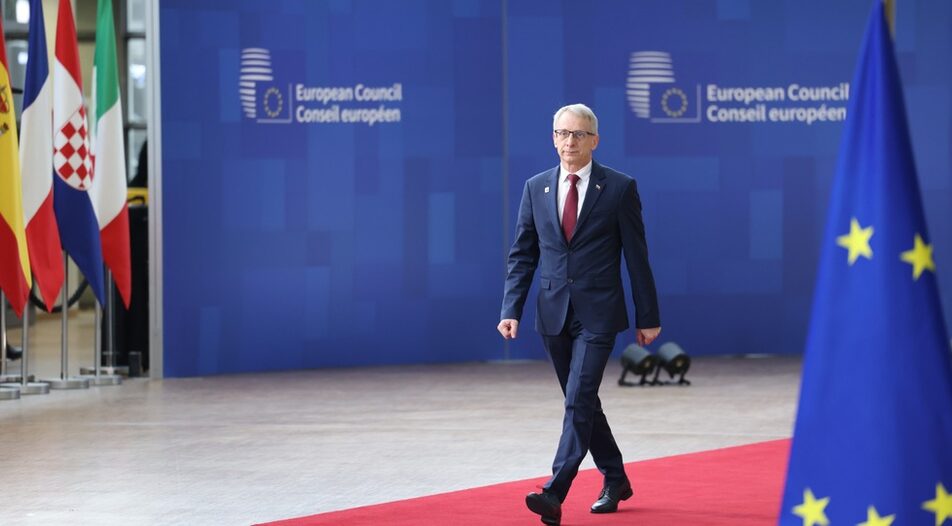Starting from next year, if you're arriving at any EU airport from Bulgaria, you'll no longer need to queue up for passport checks. That was the big hope of this week's EU leaders' meeting in Brussels, fingers crossed. It's still not very certain that such a decision will be made (we've been there plenty of times before).
Due to a very intensive Romanian lobbying process, involving the US, the Austrian government and the soon-to-be-ex Dutch prime-minister Mark Rutte, with occasional interventions from Bulgaria (the infamous gas-tax for example, is gone, to secure Hungary), a deal looks almost set. The two Balkan countries can get air-only access to Schengen, while land borders remain in limbo.
That will be a very good news if you're a reader of this newsletter (from what I know about the subscribers I can safely say they are in-between prime economy and business class, with first class here and there). But it's not very good news for the economy as a whole.
This means yet another year or so of long queues on the borders with Greece and Romania, with trucks lining up the highways for miles and miles, yet more expenses for Bulgarian businesses, more administrative procedures to divide local passengers from third-country ones and how can we be sure that there is going to be a full entry once this moment passes?
The only workable solution will be if Austria and the Netherlands agree on a date for full entry, without a further vote. That's obviously a game-changer for everyone. Rutte will be safe to leave his post and move to NATO as he wishes, EC will be happy this problem is taken off the table and will finance the transition, Romania and Bulgaria will claim victory and business here will finally get a relief.
How to secure Austria on board however? Well, here's the deal. The Interior ministry, headed by Gerhard Karner, bangs on the table saying Bulgaria and Romania are legally bound to take back registered asylum seekers, if they passed through their territory. There are, Karner said, 2000 people who need to return to Romania and 6000 to Bulgaria, and the two countries are doing nothing about it.
That's probably true. We're not very eager to welcome illegal migrants and if we do, we put them in camp-like conditions in places like Harmanly. It's a broken system. But let me suggest a master-stroke for Nikolay Denkov. Why put those people in camps? Why not fast-track them to work where there is a need?

According to projections, there is a shortage of between 100 to 200 thousand people in the Bulgarian economy right now. We're talking everything - from hospitality and care to agriculture and industry. I am pretty sure that the business community can come up with a list of vacancies with concrete positions and requirements - they already did it for Ukraine refugees in Plovdiv, for example.
Why not produce such a list, offer positions to those who want them, and ask the government to pay for the training?
You just need to offer a decent enough salary to make the scheme work so that those people can pay back whatever they owe and send money home (their primary reason for migrating). But that's not a problem, that's a negotiation.
It's a reasonably good deal for a full-Schengen entry, I think.
This newsletter is helped by
POLITICS THIS WEEK
Bulgarian Prosecution admits it can't find corruptionYou have a Bulgarian senior politician (ex-minister of Finance Vladislav Goranov) and a mogul (Vassil Bozhkov) sanctioned for high-level corruption under the Magnitsky Act. You have testimony by Bozhkov that he gave money to Goranov in order for his lottery business to run unobstructed. And there is proof from the bank that Bozhkov has indeed withdrawn large sums of cash before (again, provenly) visiting Goranov's office. Yet the Bulgarian prosecution service obviously can't link the whole thing and has given up entirely - this week the Bozhkov extortion case was closed for lack of evidence of corruption.
The missing link?
Boyko Borissov. The former PM and current coalition partner for the government has been named in Bozhkov's testimony as the one receiving the bribes, through Goranov, as well as through his press-secretary Sevdalina Arnaudova, in order to keep his lucrative lottery business running. You might remember the first reformist government event went as far as to arrest them on those grounds, only to free them later on, again for lack of evidence.
The prosecution service hasn't found any links to confirm the allegations, even though they've questioned all the deputies in several committees.
What do you need millions in cash for?
Of course, the case is another example of legal formalism, in which the investigators word-pick and focus on the term "extortion" instead of properly investigating the collusion between the trio. No real effort has been made to establish what Bozhkov needed millions in cash for, where they went, and why there wasn't a proper alarm in the State services when a large business owner made such withdrawals.
Since money doesn't disappear into thin air, Bulgarian state prosecution seems to admit it is unable to trace millions of euros, even when they were carried away in the center of the capital.
Not a very good signal for the partners in anti-money-laundering initiatives, we'd guess.
But forget that, let's change the Constitution
Against this backdrop, the process of constitutional change is steaming ahead, steered by the same people. The amendments to the constitution were adopted at the end of last week at first reading. The texts were supported by 164 deputies from WCC-DB, GERB and MRF. The next vote is expected to be today and the third and final one - just before the Christmas recess of the parliament. Therefore, the deadline for proposing changes to the draft between the two readings is one week.
What's new?
The new proposals, entered just yesterday and seen by Capital weekly, include qualified majority for all the regulators, Constitutional court excluded. This means no regulator can be filled without the approval of GERB and MRF. The mandate of the Supreme Judicial Council members is shortened to 4 years, and that of the Prosecution General - to 5 years, from the current 7.
No more space for the President
As expected, the changes will severely limit the options of the Head of State to appoint a caretaker Prime Minister. The changes stipulate that he or she can only be chosen amongst "the Speaker of the Parliament, the chairman of the Supreme Cassation Court, the Governor or deputy governor of BNB, chairman or deputy chairman of the Court of Auditors or his substitute".
Oh, and Sarafov stays for (at least) a year
Since the Parliament will have 6 months to change the laws after the constitutional change, and yet more time to select the new Supreme Judicial Council, this certifies that the current acting head of Prosecution - Borislav Sarafov, gets another year at the post. Not a bad deal, that.
ECONOMY
And some Christmas gifts for artists and healthcare workersObviously moved by the season of goodwill, Borissov, Kiril Petkov and Delyan Peevski announced a budget boost for several sectors that had been protesting in recent weeks. Among the biggest winners are cultural workers, who get more than double the current 50 million - 130 million overall.
US FDI in Bulgaria is 5.5 billion levs
US investments in Bulgaria are underestimated, according to an inquiry carried out by representatives of the Institute for Market Economics (IME) and the American Chamber of Commerce. The report they presented on Monday indicated that foreign direct investment from the US will reach 5.5 billion levs in 2023. The share of US investments in total foreign investments in Bulgaria is 5.5%, which is more than three times higher than the official statistics, said Ivan Mihaylov, CEO of the American Chamber of Commerce in Bulgaria. The standard statistical approach when compiling balance of payments statistics is to identify the origin of direct investment to the owner of the Bulgarian company. "What we have done additionally is to see the ultimate owner or beneficial owner," explains Lachezar Bogdanov, an economist at IME.
Figures:
1.6 billion euro
Worth of weapons exported by Bulgaria in 2022, according to the Economy Ministry. Poland, Czech Republic, Romania, Iraq, USA, Uganda, Congo, India and Saudi Arabia are among the biggest buyers. You might notice Ukraine is not on the list, yet two bordering countries are.
BUSINESS
AIAmazon Web Services
The on-demand cloud computing platforms subsidiary of Amazon donated a research and development grant worth USD 1 million to the Institute for Computer Science, Artificial Intelligence and Technology (INSAIT) at Sofia University.
Semiconductors
Broadcom
Just days after acquiring software giant VMware, US-based Broadcom has begun layoffs and cost-cutting in its Sofia office, where at least 200 employees have been shown the door. According to company sources, several more waves of layoffs are coming next year to the biggest Bulgarian IT employer.
Batteries
ABBE
The fledgling Belgian battery company announced plans this week to build a plant in Stara Zagora, a recycling factory in Burgas and an R&D center in Plovdiv. The investment is expected to be 1.1 billion euro, with the government providing the maximum possible state aid. A note of caution, however: the company announced a similar plan in Romania, which means they might just be testing the water.
ENERGY
Maritsa East Mines keeps losing record amounts of moneyAgainst the backdrop of successive protests by trade unions and employees in the state-owned Maritsa East Mines, the company's finances continue to deteriorate. By the end of September, it had already notched up a record loss of 99.6 million levs, compared to a profit of 60 million for the same period last year, when the coal plants were operating at maximum capacity due to the electricity price crisis. The mines' losses started to pile up in the second quarter of the year. By the end of September, i.e. three months later, it was already almost 50% higher, suggesting an even more substantial accumulation of the loss at the end of the year.
WATCH OUT FOR
People
Vyara Todeva
The regional governor of Sofia, who gave the order to start removing the monument of the Soviet Soldier from the center, sparking a wave of protests and counter protests (see below).
Zdravko Dimitrov
Ex-Plovdiv mayor will have a new position - manager of the real estate of the Plovdiv bishop. That's not a bad position to have, as Capital investigation recently uncovered tens of properties only in the city and probably hundreds more in the region. The church is not obliged to publish its properties, nor to pay tax on them.
Date
25-27 July 2024
Hills of Rock
The big rock and metal festival returns to Plovdiv next summer, starring American nu metal band Korn as a headliner
9 to 15 August 2024
Bulgaria announces the hosting of the first International Olympics in Artificial Intelligence (IOAI) for highschool level students, which will take place from in Burgas. The Olympiad is organized by engineer Alexander Velinov, the mayor of Burgas, Dimitar Nikolov, and the CEO of the IT company Musala Soft, Elena Marinova.
PlaceSki resorts
The biggest local winter resorts will officially launch the opening of the ski season this weekend. On December 15 and 16 Pamporovo, Borovets and Bansko, respectively, will be opening their slopes. Do enjoy!
WORD OF THE WEEK
МОЧА - Monument of the Liberator Red Army
The derogatory shortcut of the monument became mainstream several years ago (мочам, or mocham is a slang for "to take a piss" in Bulgarian).
This year, the longstanding monument in the center of the capital finally met its fate. Under the premise that it is structurally unsafe, Sofia Regional Authority began dismantling - or, to be precise, dismembering, the Soviet Army figures. Probably symbolically, the process started with the severing of the arm of the soldier holding a machine gun victoriously in the air.
The removal of the monument - which has been the stage for many pro and anti-Russian marches - created more memes and polarized reactions in social media than in real-life. Russophiles predictably branded it fascism and barbarism, while liberal circles celebrated. Parliament stopped work for a while, as BSP and Vazhrazdane demanded a halt to the process.
Yet the most visible fallout from this action is in Sofia municipality, where the new winners of WCC-DB lost their hopes of a coalition with BSP and are now facing the only option - to work with GERB. To sum up this week's newsletter: game and set for Mr. Borissov.
Starting from next year, if you're arriving at any EU airport from Bulgaria, you'll no longer need to queue up for passport checks. That was the big hope of this week's EU leaders' meeting in Brussels, fingers crossed. It's still not very certain that such a decision will be made (we've been there plenty of times before).
Due to a very intensive Romanian lobbying process, involving the US, the Austrian government and the soon-to-be-ex Dutch prime-minister Mark Rutte, with occasional interventions from Bulgaria (the infamous gas-tax for example, is gone, to secure Hungary), a deal looks almost set. The two Balkan countries can get air-only access to Schengen, while land borders remain in limbo.












